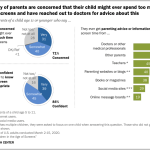Table of contents
The Benefits of Teaching Emotional Intelligence to Kids
It is no secret that teaching emotional intelligence to children is a great idea. Emotional intelligence (EQ) is linked to a wide range of life-long benefits – from better academic performance to improved social skills and greater self-esteem. That is why it is important to ensure that children’s EQ skills are properly developed.
What is Emotional Intelligence?
Emotional intelligence can be defined as the ability to recognize and regulate our own emotions, as well as the ability to recognize and respond to the emotions of others. It goes beyond simply monitoring our own feelings; it also involves understanding and managing our own emotional reactions and interacting respectfully and productively with the emotions of others.
Benefits of Developing Emotional Intelligence in Kids:
There are a number of beneficial outcomes associated with teaching emotional intelligence to children:
- Improved academic performance
- Improved social skills
- Greater emotional resilience to stress
- Higher self-confidence and self-esteem
- Greater emotional awareness
- Improved ability to handle conflicts
- Enhanced ability to form meaningful relationships
- Increased empathy and understanding
How to Develop Emotional Intelligence in Young Kids
There are a number of different approaches to developing emotional intelligence in young children. Here are just a few of the most effective and widely used methods:
- Encouraging empathy and understanding for others through stories and play.
- Teach kids to recognize and label their feelings.
- Encourage problem-solving and self-regulation – train kids to recognize the warning signs of emotional distress and take proactive steps to manage their own emotions.
- Provide healthy role models – children learn a great deal through observation. Modeling positive emotions and behaviors can help children learn to manage their own emotions in a healthy way.
- Teach kids how to negotiate, resolve conflict, and disagree respectfully.
- Teach children the importance of respect and communication.
Conclusion
Developing emotional intelligence in children is an important part of nurturing healthy, resilient, and successful individuals. Emotional intelligence is key to social success, and the lifelong skills that come with it are invaluable. Teaching emotional intelligence isn’t always easy, but the rewards are worth it. From improved academic performance to greater self-confidence and resilience, the benefits of EQ can last a lifetime.







